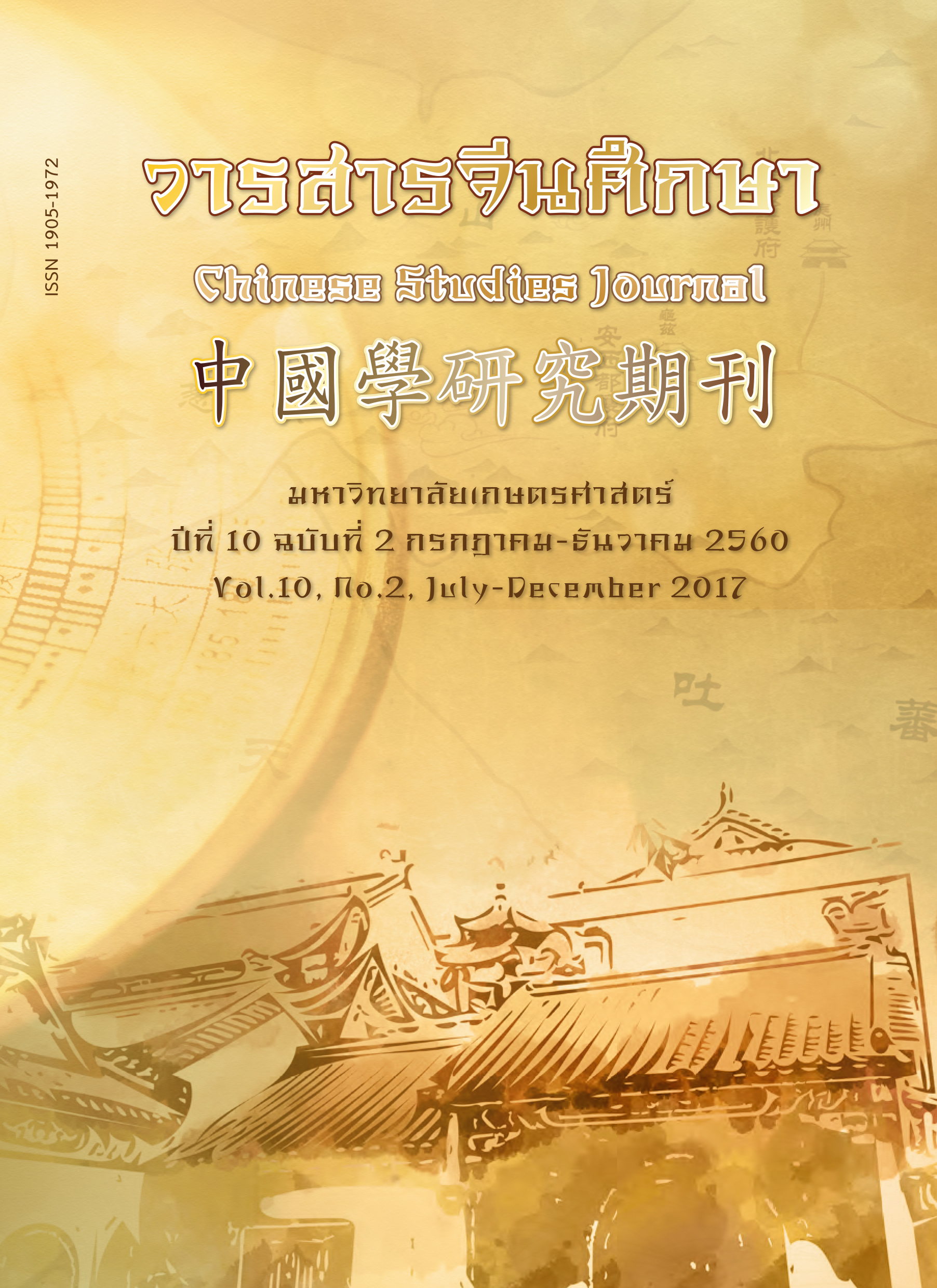A Comparative Study Cognitive Metaphors in Quantifiers of Chinese - Thai“颗 [kē]”and “เม็ด[meːt]”
Main Article Content
Abstract
The Chinese quantifier“颗 [kē]”and "the Thai quantifier “เม็ด[meːt45]” are both used for granular things, but there is difference in the collocation of nouns and quantifiers. According to the cognitive linguistics found that metaphor is a mechanism or conductor which can explain the extent of word form meaning, learning, and perceptions. This theory is very helpful in language learning and teaching both mother language and other foreign languages. Therefore, this article will take cognitive metaphors the extent of noun in accompany with the quantifiers of Chinese - Thai“颗 [kē]”and “เม็ด[meːt45]” Underneath cognitive linguistics theory, firstly, studying the extent of word form meaning quantifiers of Chinese - Thai“颗 [kē]”and “เม็ด[meːt45]” . Secondly, to see the factor those influence the similarity and the difference meaning both two languages in metaphor which and aims to be a guideline in Chinese quantifiers as a second language. In comparing the quantifiers of Chinese - Thai “颗[kē]”and “เม็ด[meːt45]” showed that the extent of noun is in accompany with the quantifiers of Chinese - Thai“颗[kē]”and “เม็ด[meːt45]” was related to metaphor according to the concept of cognitive linguistics theory which reflect that both two languages have also the similarity and the difference and gained from the influences of learning process and culture between two religious.
Article Details
ผลงานทางวิชาการที่ลงตีพิมพ์ในวารสารจีนศึกษา มหาวิทยาลัยเกษตรศาสตร์ เป็นลิขสิทธิ์ของผู้เขียนหรือผู้แปลผลงานนั้น หากนำลงในวารสารจีนศึกษาเป็นครั้งแรก เจ้าของผลงานสามารถนำไปตีพิมพ์ซ้ำในวารสารหรือหนังสืออื่นได้โดยมิต้องแจ้งให้ทราบล่วงหน้า แต่หากผลงานที่ได้รับพิจารณานำลงในวารสารจีนศึกษา เป็นผลงานที่เคยตีพิมพ์ที่อื่นมาก่อนเจ้าของผลงานต้องจัดการเรื่องปัญหาลิขสิทธิ์กับแหล่งพิมพ์แรกเอง หากเกิดปัญหาทางกฎหมาย ถือว่าไม่อยู่ในความรับผิดชอบของวารสารจีนศึกษา มหาวิทยาลัยเกษตรศาสตร์ ทั้งนี้ ความคิดเห็นต่างๆ ในบทความเป็นความคิดเห็นส่วนตัวของผู้เขียน ไม่เกี่ยวกับกองบรรณาธิการวารสารจีนศึกษา มหาวิทยาลัยเกษตรศาสตร์


